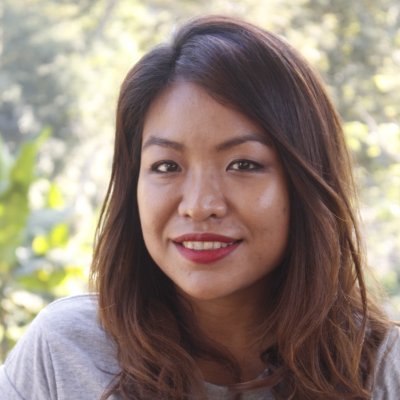Community Health Work is Work Community Health Workers from Nepal head to Geneva to demand Rights and Respect

Basanti Maharjan and Gita Devi are dedicated union leaders fighting for the rights of Female Community Health Volunteers (FCHVs) in Nepal. They are going to attend the ILO's International Labour Conference to draw the world’s attention to their sustained struggle for rights and respect, putting it on the annual discussion of workers, governments and employers for the first time.
- Read this in:
- en

Trimita Chakma
For more than a decade, Community Health Workers (CHWs) across Asia have been demanding that their vital work be recognised as work. In several countries in South Asia and Southeast Asia women deliver essential primary healthcare to the most marginalised communities, yet are denied the right to wages, social security and job security. Now, two CHWs are travelling to Geneva to bring their fight to the United Nations International Labour Conference (ILC).
Basanti Maharjan and Gita Devi are dedicated union leaders fighting for the rights of Female Community Health Volunteers (FCHVs) in Nepal. They are determined to draw the world’s attention to their sustained struggle for rights and respect, putting it on the annual discussion of workers, governments and employers for the first time.
Video
Basanti Maharjan and Gita Devi will be attending the 112th Session of the International Labour Conference in Geneva, Switzerland, from 3-14 June 2024, with the assistance of Jeni Jain Thapa, Project Organiser from Public Services International (PSI) Nepal. They aim to draw the world’s attention to their sustained struggle for rights and respect, putting it on the annual discussion of workers, governments and employers for the first time.
CHW from Nepal @ ILC2024
Basanti Maharjan has been working as an FCHV and is the President of Health Volunteers' Organisation of Nepal (HEVON) for 15 years. She has experienced the devastating consequences of inadequate public health systems first hand. She lost her sister to preventable maternal health complications "I lost my sister, but I don't want others to lose their loved ones because of a lack of awareness and support," Basanti shares. Determined to make a difference, she stepped up to raise her sister's children while continuing to educate her community about healthcare.
Gita Devi Thing, an FCHV and President of Nepal Health Volunteers Association (NEVA), faced her own set of challenges. She was kicked out of her home with her two young daughters after dedicating herself to Community Health Work. During the COVID-19 pandemic, she lost her brother due to understaffing and inadequate facilities in healthcare centres. "It breaks my heart to see our communities suffer because of the lack of investment in our health systems," Gita expresses with tears in her eyes.
Gita Devi Thing President, NEVA

We are not volunteers; we are workers. We deserve dignity, respect, and fair compensation for the vital services we provide to our communities.
The stories of Basanti and Gita are not isolated incidents but rather a reflection of the systemic issues in the care and health infrastructure. CHWs, who are almost entirely women, form the backbone of national healthcare systems in many countries, yet they are consistently denied recognition as workers and face numerous challenges, including poverty-level payments, poor working conditions, and little or no access to social protection.
Despite the critical role they play, CHWs continue to face significant challenges. "We are not volunteers; we are workers," Gita asserts. "We deserve dignity, respect, and fair compensation for the vital services we provide to our communities."
The failure to recognise and support CHWs stems from the chronic underfunding of public health systems and the gendered devaluation of care work as inherently women's work. This has resulted in a fragile care infrastructure that relies on the exploitation of CHWs to fill the gaps, particularly in rural and marginalised communities.
Investing in CHWs and the care infrastructure is not only a matter of justice for these workers but also crucial for building resilient health systems that can respond to public health emergencies and deliver quality care to all. The COVID-19 pandemic has highlighted the vital role played by CHWs and the urgent need to strengthen the care infrastructure.
Basanti Maharjan President, HEVON

We were called COVID warriors during the pandemic, but we were not given the support and protection we needed. It's time for our governments and the international community to recognise our work and invest in the care infrastructure.
Basanti and Gita will demand recognition, support, and investment in care infrastructure from all governments and international organisations.They call for their work to be recognised as dignified work and for the government to provide them with adequate facilities, compensation, and support. Their experiences are particularly relevant to this year's ILC agenda, which includes discussions on decent work in the care economy.
As Basanti and Gita prepare to take their message to the global stage, they carry with them the hopes and dreams of countless CHWs who continue to serve their communities against all odds. PSI’s Charter of Demands of Community Health Workers in South Asia is founded on these principles.
It's time for the world to listen to them and take action to build a stronger, more resilient care infrastructure that values and supports the indispensable contributions of Community Health Workers.
Basanti Maharjan and Gita Devi will be attending the 112th Session of the International Labour Conference in Geneva, Switzerland, from 3-14 June 2024, with the assistance of Jeni Jain Thapa, Project Organiser from Public Services International (PSI) Nepal.
For information on PSI’s campaign for the rights of CHWs, click here.